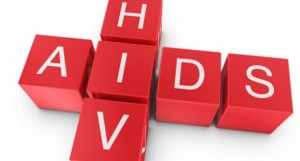Recent clinical trials have proven that a daily dose of pre-exposure prophylaxis (PrEP) can significantly reduce the transmission of HIV among populations at higher risk of contracting the disease.
As a result of these findings, the Centers for Disease Control and Prevention (CDC) on Wednesday released the first practical clinical guidelines for PrEP, with the recommendation that PrEP be considered for people who are HIV-negative and at substantial risk for HIV.
The National Association of Social Workers is urging social workers who work with such populations to be aware of these guidelines so they can better educate consumers.
“Social workers can help educate social workers, who in turn, can let their clients know that medications exist that would greatly reduce their risk of contracting HIV,” said Darrell Wheeler, PhD, MPH, ACSW, president-elect of the National Association of Social Workers and dean of the Loyola University School of Social Work.
What is PrEP?
PrEP is a prevention tool for use with persons who are HIV negative and in an ongoing sexual relationship with an HIV positive partner.
PrEP is also an option for other groups, including:
- Those not in a mutually monogamous relationship with a partner who recently tested HIV negative.
- A gay or bisexual man who has had anal sex without a condom or been diagnosed with a sexually transmitted disease in the past six months.
- A heterosexual man or woman who does not regularly use condoms during sex with partners of unknown HIV status and are at substantial risk of HIV infection. These include bisexual people and/or people who inject drugs.
The guidelines note that the success of PrEP included the effects of repeated condom provision, sexual risk-reduction counseling, and the diagnosis and treatment of sexually transmitted infection (STI) that were provided to all trial participants.
Why is this a social work practice issue?
Social workers are clinicians and educators. For PrEP to be successful, clients and patients need information and resources.
The CDC guidelines note that people who use PrEP must be able to take the drug every day and to return to their health care provider every three months for a repeat HIV test, prescription refills, and follow up.
Social workers have the clinical skills to help clients with medication adherence, the understanding of systems and resources to identify and help address structural barriers to accessing health care and follow up, and the practice expertise in mental health and behavioral health services that are equally critical to HIV prevention, care, and treatment.
PrEP also increases the options for reproductive choices for heterosexual couples. For couples where one partner has HIV and the other does not (discordant couples), PrEP is one of several options to protect the uninfected partner during conception and pregnancy.
The Pre-exposure Prophylaxis for the Prevention of HIV Infection in the United States – 2014 Clinical Providers’ Supplement provides additional information on Medication adherence and developing an adherence plan.
Social workers armed with this knowledge can help reduce the spread of HIV in the United States and around the world, Wheeler said.
There are now more than 1.1 million people aged 13 and older in American living with HIV and about one and six do not know they are infected with the virus, according to the CDC. The African American community in the United States has been particularly hard hit by HIV, the CDC said.
“This is a major epidemic globally and certainly within certain segments of the U.S. population,” Wheeler said. “This is the opportunity for us as a profession to be at the front end of promoting significant change on a public health issue and utilize our rich historical background to reach these vulnerable communities.”
Social workers are committed to helping reduce the transmission of HIV and help people living with HIV have a better quality of life. The NASW HIV/AIDS Spectrum Project provides mental health and HIV practice skills to help social workers and other social service professionals who work with individuals, families and communities affected by HIV/AIDS. For more information about the Spectrum project contact Project Director Evelyn Tomaszewski, MSW, ACSW, at etomaszewski@naswdc.org.





